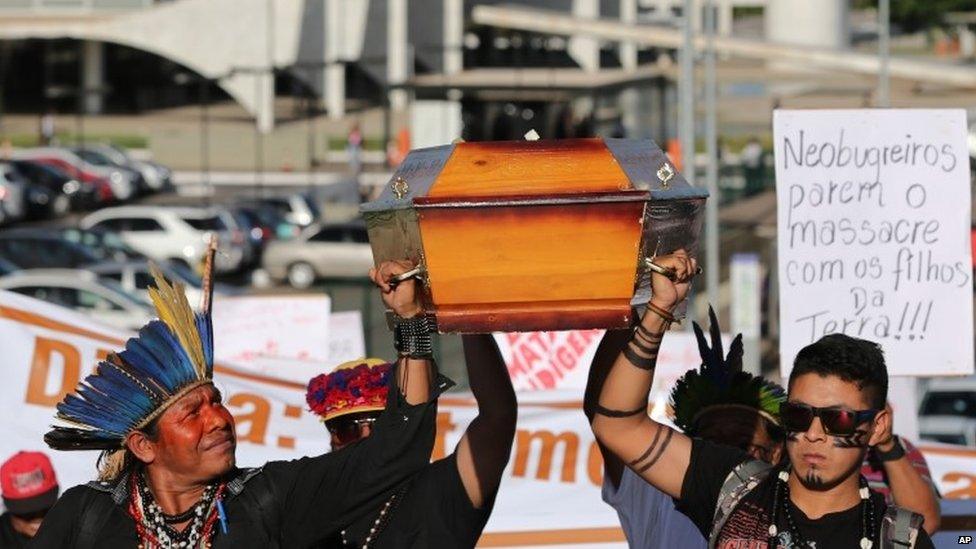Brazil's Guarani-Kaiowa tribe allege genocide over land disputes
- Published
The BBC's Wyre Davies reports from Matto Grosso do Sul, where indigenous leaders have accused landowners of murder
Genocide is an emotive and powerful accusation to make against anyone but it is exactly what some indigenous leaders in Brazil say is happening to their people because of their government's ignorance, if not its compliance.
For the past week hundreds of members of the Guarani-Kaiowa tribe have been mourning the death of a 24-year-old man, Semiao Vilhalva. He was killed - shot in the face - during an invasion, or re-occupation, of three farms in the western state of Mato Grosso do Sul.
I looked on as elderly members of the tribe chanted tributes in their native tongue and led mourners across fields they say have belonged to their people for centuries - long before their present white so-called owners arrived, cut down the trees and populated the area with cattle.
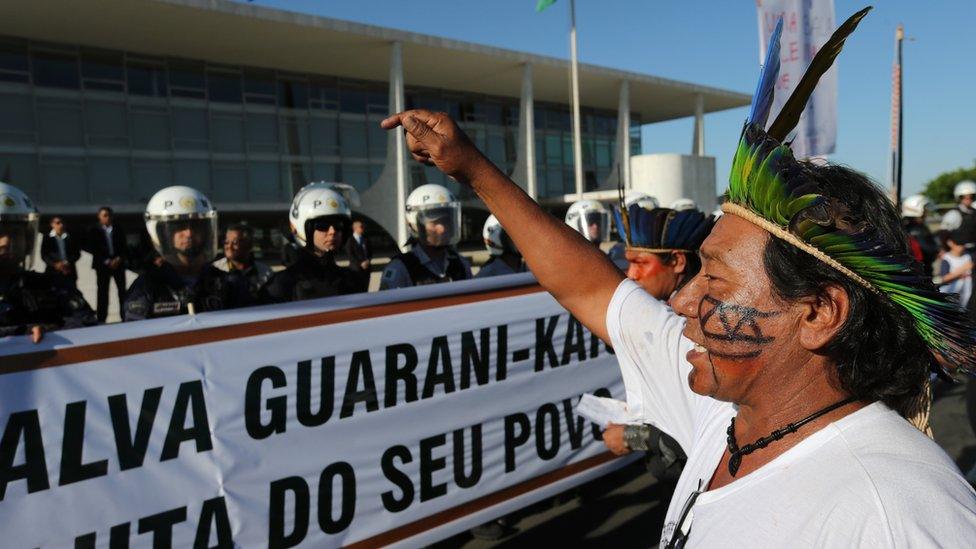
The Guarani have taken their protests to Brazil's capital, Brasilia
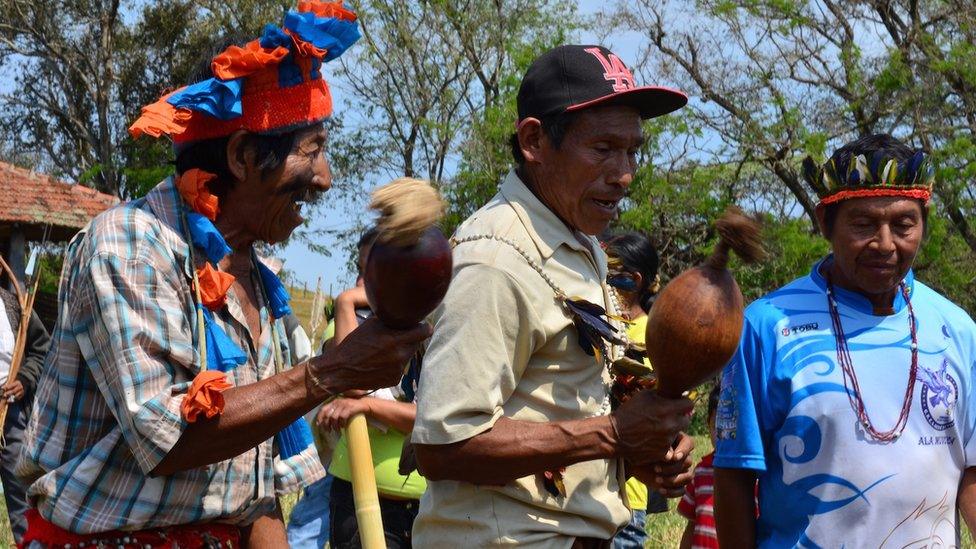
The Guarani hold their own ceremony for Semiao
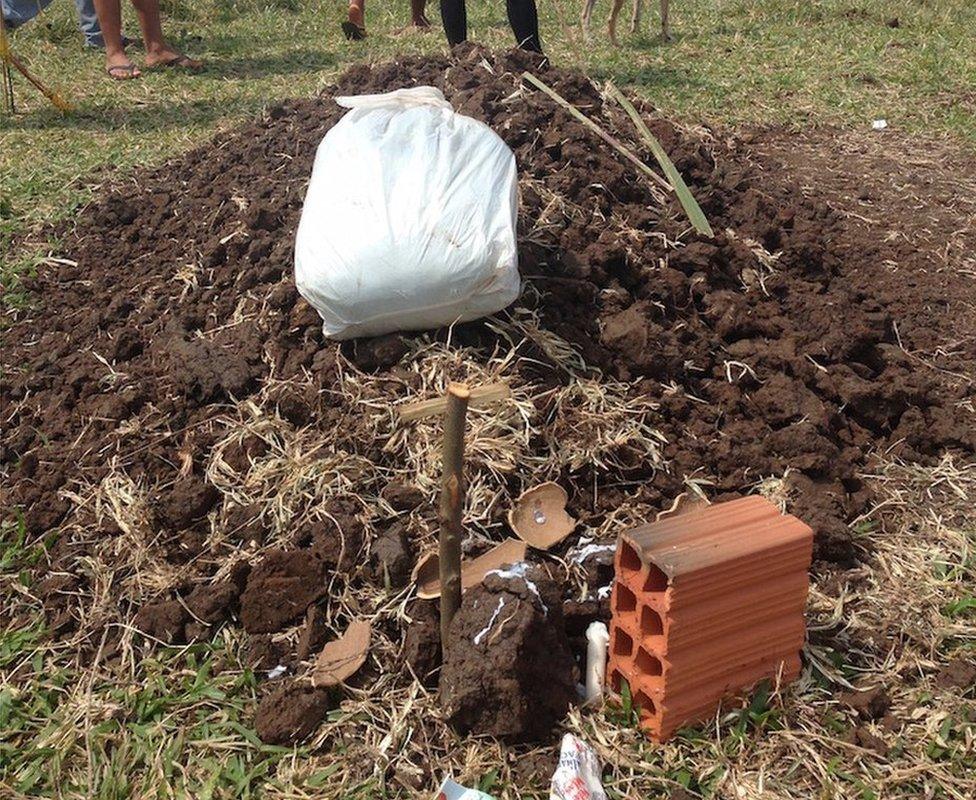
Semiao Vilhalva was buried on disputed land
Semiao was buried on this land, now occupied by the Guarani but also claimed as legally theirs by several influential and powerful farming families here in the state of Mato Grosso do Sul.
Guarani men showed me the very spot, on the bank of a small river, where Semiao was shot and died. The gunman, say my guides, was a hired "pistoleiro" brought in by the farmers to intimidate and scare off the Guarani.
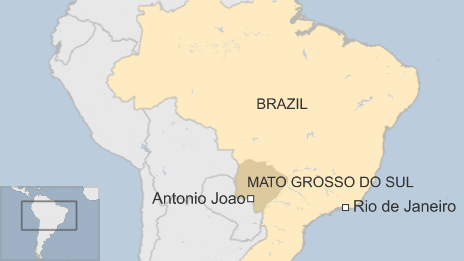
But, if anything, the murder of their young leader has made these indigenous people even more resolute to remain.
"This is a deliberate policy of genocide. It's a long legal process designed to kill our people, slowly but surely," says Guarani elder Tunico Benites.
He goes on: "Our rights are being violated and we don't have even the basic conditions to survive. So we have no choice but to occupy, to retake our lands - otherwise we can't survive as a people."
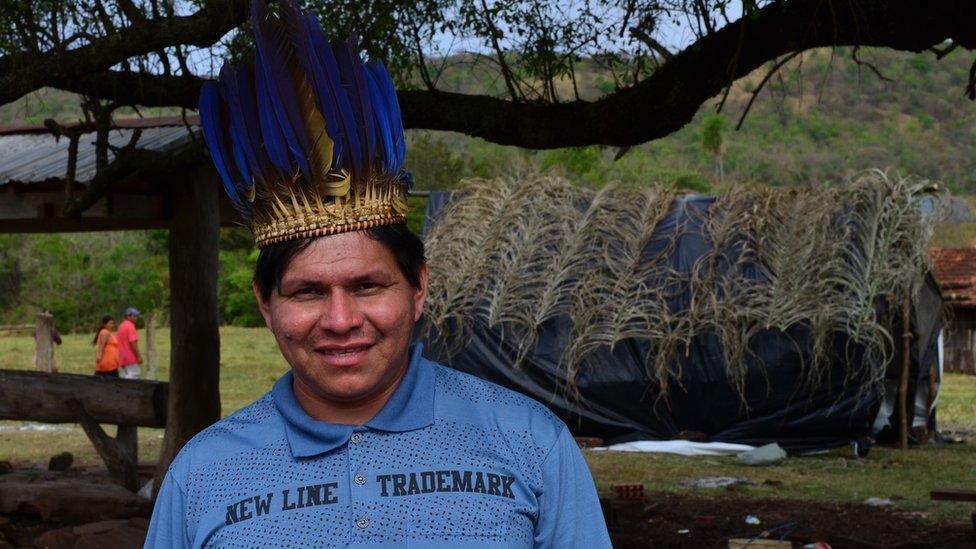
Tunico Benites says his people face a threat
One of those farmers whose land is claimed by the Guarani, under a legal ruling dating back to 2005, is Roseli Ruiz. She is also the chairwoman of the local farmers' syndicate, or union, and is completely mistrustful of the way the dispute has been reported in the international media.
In her office in the rural town of Antonio Joao, Roseli Ruiz dismisses any suggestion that farmers had a hand in the death of Semiao.
Arguing that that there was no obvious gunshot wound on his body (in contrast to a video I was shown which suggested otherwise) the combative Ms Ruiz offered an explanation that the Indians themselves brought someone who had died earlier, and presented it as a murder, just to discredit the farmers and advance their claims to the land.
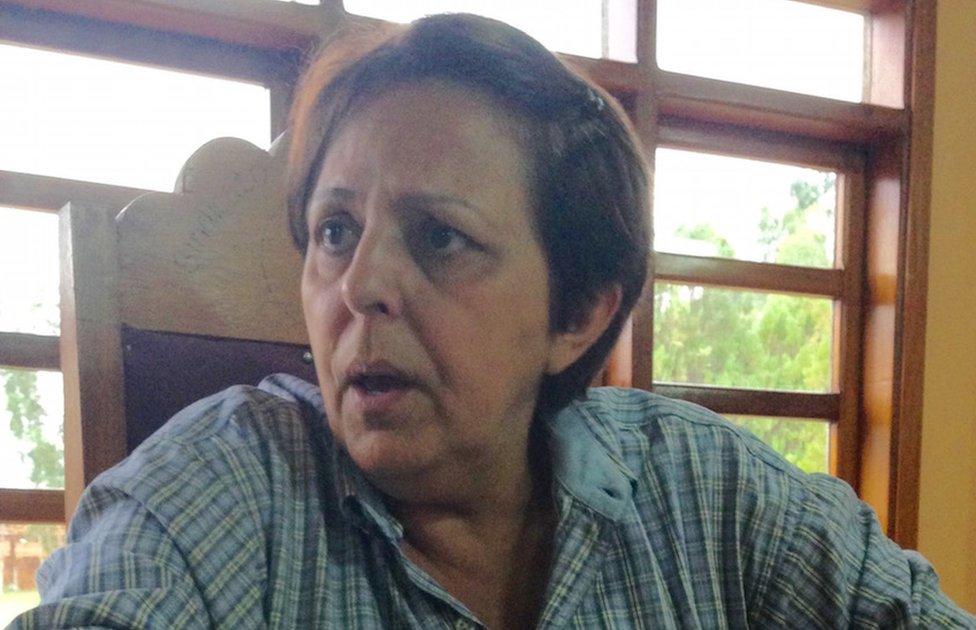
Roseli Ruiz: "I was known as Roseli of the Indians"
Roseli Ruiz paints a picture of a hitherto mutually beneficial relationship between indigenous and farmer.
"I was known as Roseli of the Indians," she cries. "I took them to hospital if they were ill and even built them a school."
It was a relationship that, according to Roseli, only started to deteriorate when the Guarani began to pursue claims to the land - claims which she insists are baseless.
Ranchers have long been part of Brazil's drive for development - deep into the interior of the country and into conflict with indigenous people.
While some farmers have taken their cattle and moved on from the disputed land, others are refusing to move.
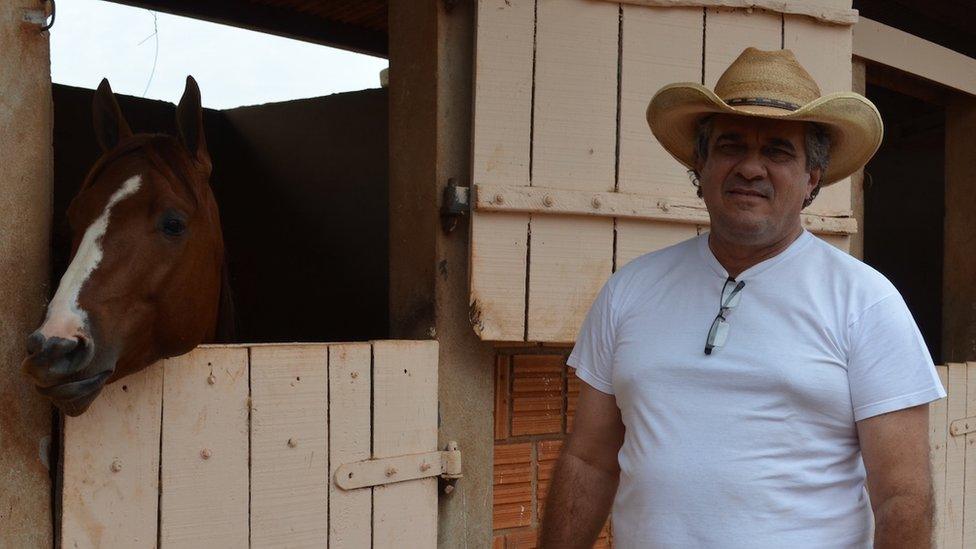
Farmers like Gino Ferreira refuse all attempts to move them out
Gino Ferreira, like many farmers, has legal titles to his fazenda - or farm. He blames the government for doing nothing while an inevitable conflict loomed.
"This is my family's land," says Gino. "If the Indians arrive and take it over what do you think I'm going to do? Lose all I've worked for?"
He too, dismisses any allegations that farmers had a hand in the death of the Guarani leader, Semiao.
"We're not bandits and we don't hire gunmen," says the 50-year-old farmer.
He goes on, "There are political reasons why they to try and make us look bad but none of it is true."
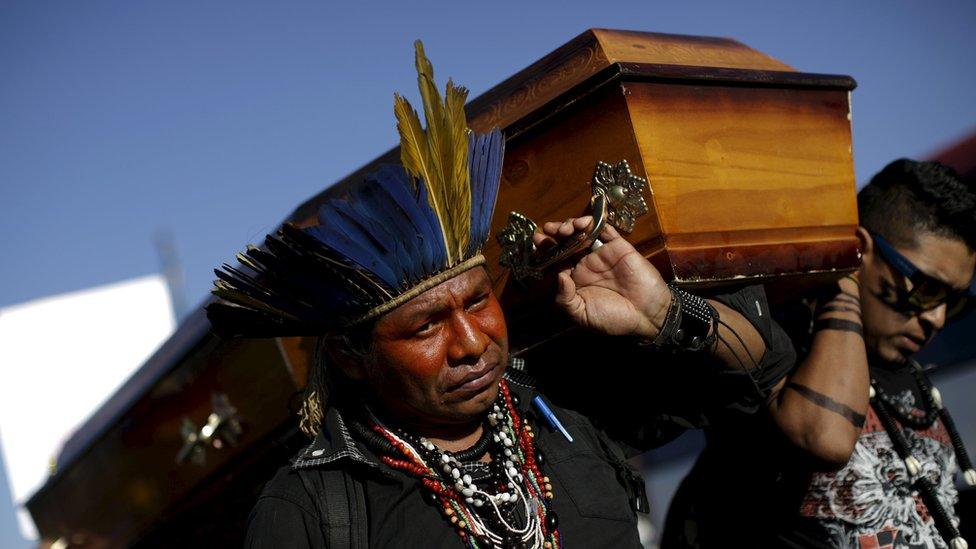
Indigenous leaders used an empty coffin to protest against Semiao's death
But the Guarani's reputation for dogged determination and their struggle has attracted attention beyond this rugged border region between Brazil and Paraguay.
Survival International, one of several pressure groups to criticise the hitherto unexplained death of the tribe's leader said, "What is particularly harrowing about this murder is that the Guarani knew their reoccupation was likely to end in bloodshed."
The mood among the Guarani is militant. As other Brazilians this week celebrated their independence day, the land's original inhabitants mourned what they had lost.
For now the Brazilian army is doing a good job of keeping the two sides apart - preventing new land invasions and more retribution.
Occupying these 10,000 hectares the Guarani may have succeeded in recovering some of what was historically theirs.
But it has come at a high price and their lives are still burdened by poverty and discrimination.
- Published6 September 2015
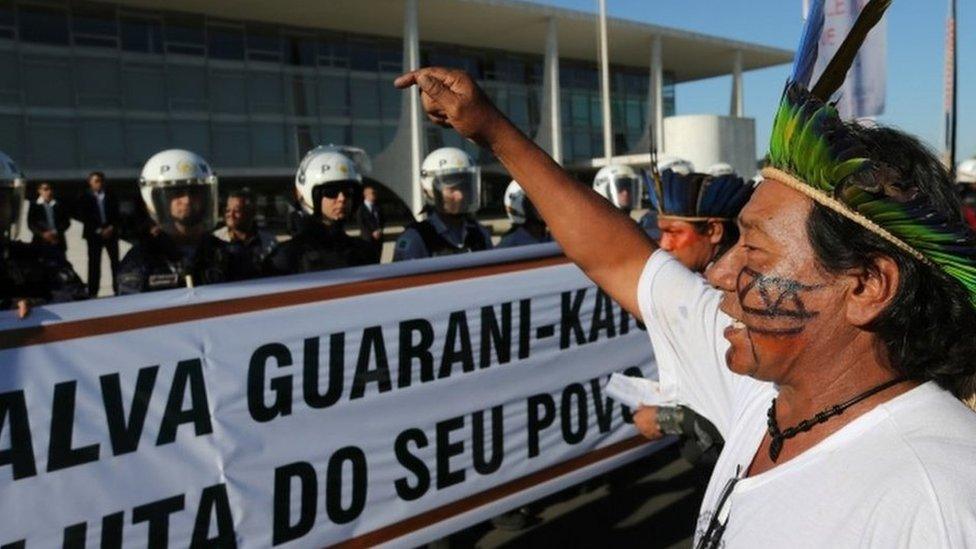
- Published3 September 2015
